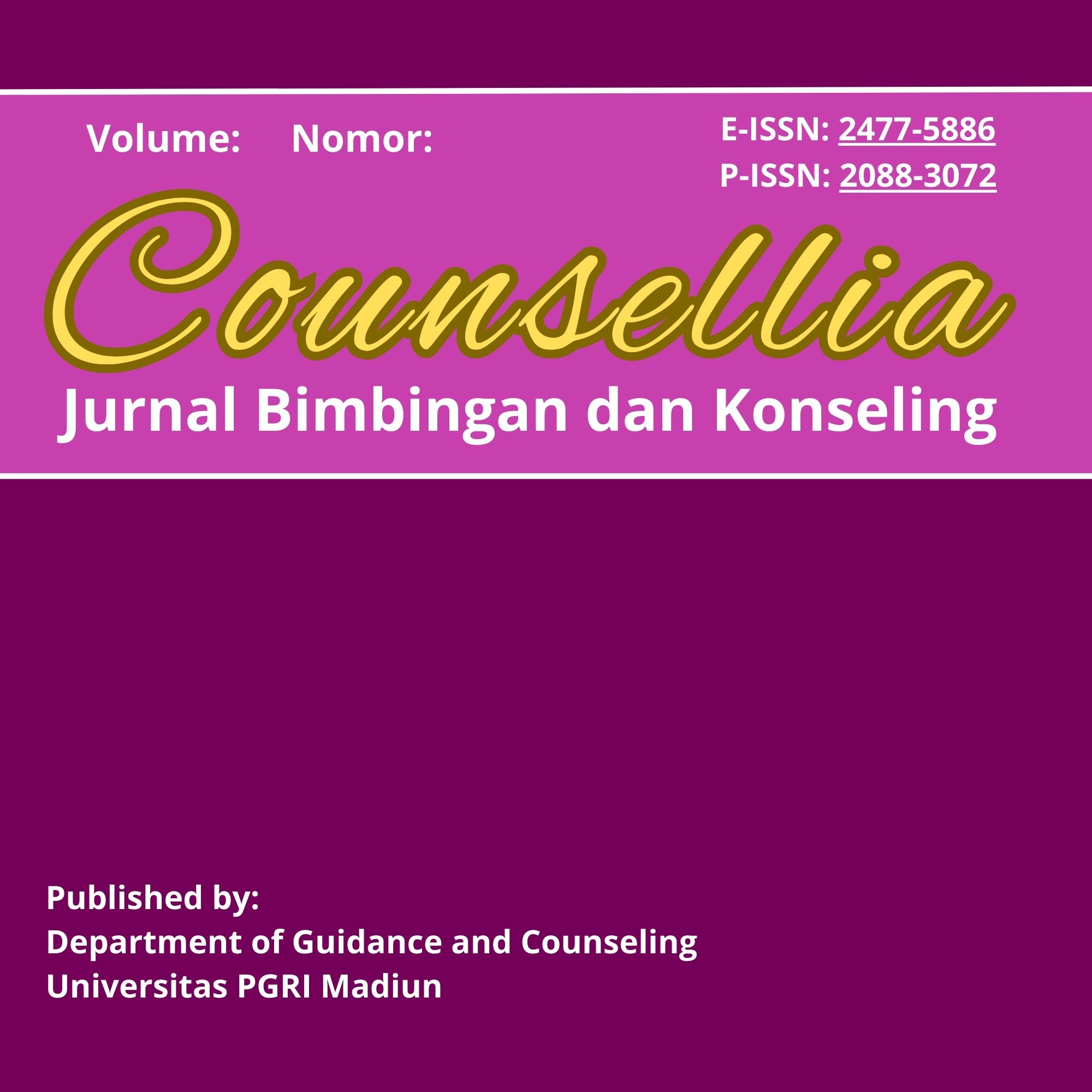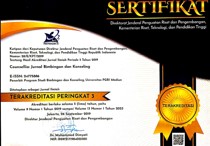Penerapan konseling Islami berbasis teori Imam Al–Ghazali dalam meningkatkan makna hidup generasi Z
DOI:
https://doi.org/10.25273/counsellia.v15i1.22271Keywords:
Islamic counseling, Imam Al-Ghazali, Life meaning, Generation Z, Tazkiyatun NafsAbstract
Generasi Z menghadapi tantangan eksistensial yang kompleks akibat arus digitalisasi dan krisis identitas, yang berdampak pada penurunan makna hidup. Penelitian ini bertujuan untuk mengeksplorasi penerapan konseling Islami berbasis teori Imam Al-Ghazali dalam meningkatkan makna hidup Generasi Z. Penelitian menggunakan metode kualitatif deskriptif dengan desain studi kasus. Data dikumpulkan melalui wawancara mendalam, observasi, dan dokumentasi terhadap lima informan berusia 17–25 tahun yang mengalami krisis makna hidup dan telah menjalani konseling Islami. Analisis data dilakukan secara tematik, dengan fokus pada lima konsep utama: muhasabah, taubat, sabar, syukur, dan tazkiyatun nafs. Hasil penelitian menunjukkan bahwa setelah menjalani konseling islami, informan mengalami transformasi spiritual dan psikologis yang signifikan. Mereka mulai menjalani hidup dengan lebih tenang, penuh syukur, dan memiliki arah yang jelas. Nilai-nilai spiritual yang diajarkan Imam Al-Ghazali terbukti efektif membentuk kesadaran transendental yang berdampak pada kestabilan emosi, peningkatan ibadah, dan keseimbangan hidup. Konseling Islami berperan sebagai jembatan dalam menghubungkan individu dengan nilai-nilai spiritual yang memberi makna mendalam pada hidup mereka.
Abstract : Generation Z faces existential challenges arising from digitalization and identity crises, leading to a decline in life meaning. This study aims to explore the role of Islamic counseling based on Imam Al-Ghazali’s thought in enhancing life meaning among Generation Z. The study employed a descriptive qualitative method with a case study design. Data were collected through in-depth interviews, observation, and documentation involving five informants aged 17–25 who had experienced a life meaning crisis and undergone Islamic counseling. Thematic analysis focused on five key concepts: muhasabah (self-reflection), taubah (repentance), sabr (patience), syukr (gratitude), and tazkiyatun nafs (soul purification). The results indicate significant psychological and spiritual transformation after Islamic counseling. Informants reported increased emotional stability, gratitude, and spiritual awareness that shaped a clearer life direction. Imam Al-Ghazali’s teachings effectively facilitated the development of transcendental consciousness and a balanced life. Islamic counseling served as a bridge connecting individuals with spiritual values that provide deeper meaning and purpose in life.
Downloads
References
Alimuddin, N., & Rahmi, S. (2021). Peran Bimbingan Konseling Islam (Bki) Dalam Menangani Dampak Psikologis Remaja Akibat Perceraian. Jurnal Mahasiswa BK An-Nur : Berbeda, Bermakna, Mulia, 7(3), 98. https://doi.org/10.31602/jmbkan.v7i3.5806
Ananda, S., D., N. (2024). Finding Meaning Of Life In Imam Al-Ghazali ’ S Concept Of Ma ’ Rifatun Nafs ’ Through Logotherapy Counseling. Jurnal Bimbingan Penyuluhan Islam, 06(02). https://doi.org/https://doi.org/10.32332 /63qma129
Arroissi, J., & Mukharrom, R. A. (2021). Makna Hidup Perspektif Victor Frankl. Universitas Darussalam Gontor Ponorogo, 20(1), 112. https://doi.org/https://doi.org/10.30631/tjd.v20i1.139
Awang, S., & Jais, S. M. (2020). Reliability of the Tazkiyatun NAFS Module. International Journal of Academic Research in Business and Social Sciences, 10(2), 69–82. https://doi.org/10.6007/ijarbss/v10-i2/6873
Fauziah, M., A., S., Saputra, W., N., E., Lia, A., R., V., A. (2023). Pengembangan dan Validitas Inventori Makna Hidup. Indonesian Journal of Educational Counseling Is, 7(1), 42–49. https://doi.org/10.30653/001.202371.253
Hakim, L., Sajjad Baaly, A., & Bakar Yamani, A. (2024). Syukur Sebagai Pencegah Insecure Perspektif Abu Hamid Al Ghazali. Jurnal Ilmu-Ilmu Ushuluddin Volume 26 Nomor 1, April 2024 Https://Jurnal.Ar-Raniry.Ac.Id/Index.Php/Substantia, 26(April), 26–43. https://doi.org/10.22373/substantia.v26i1.22711
Haryanto, H. C., & Kertamuda, F. E. (2016). Syukur Sebagai Sebuah Pemaknaan. Insight: Jurnal Ilmiah Psikologi, 18(2), 109. https://doi.org/10.26486/psikologi.v18i2.395
Herlina, E. R. (2023). Pandangan Islam Terkait Gaya Hidup Hedonisme Pada Generasi Z. Andragogi : Jurnal Ilmiah Pendidikan Agama Islam, 5(1), 1–10. https://doi.org/10.33474/ja.v5i1.16183
Downloads
Published
Issue
Section
License

This work is licensed under a Creative Commons Attribution-NonCommercial-ShareAlike 4.0 International License.
In order to be accepted and published by Counsellia: Jurnal Bimbingan dan Konseling, the author(s) submitting the article manuscript should complete all the review stages. By submitting the manuscript the author(s) agreed to the following terms:
The copyright of received articles shall be assigned to Counsellia: Jurnal Bimbingan dan Konseling. The intended copyright includes the right to publish articles in various forms (including reprints). Counsellia: Jurnal Bimbingan dan Konseling maintain the publishing rights to the published articles.
Authors are allowed to use their articles for any legal purposes deemed necessary without written permission from Counsellia: Jurnal Bimbingan dan Konseling with an acknowledgement of initial publication to this journal.
Author sent the copyright transfer form (here) to the journal.

This work is licensed under a Creative Commons Attribution-NonCommercial-ShareAlike 4.0 International License.







